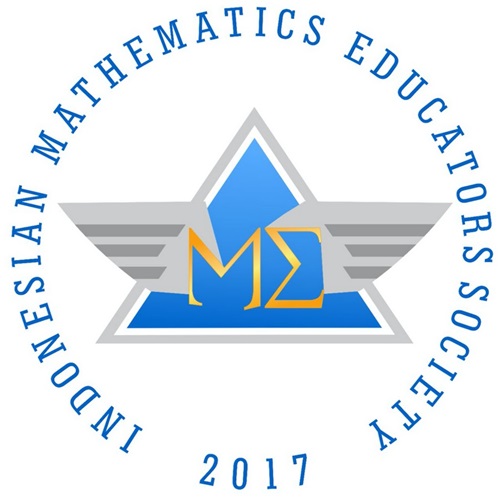Mathematical Literacy Skill of IX Grade Student in term of David Kolb Learning Style
DOI:
https://doi.org/10.22437/edumatica.v11i01.11438Keywords:
class IX, David Kolb, learning style, mathematic literacyAbstract
The purpose of this study was to determine the characteristics of mathematical literacy skills of class IX students based on learning styles according to David Kolb. This study uses an analytical descriptive approach with research subjects of class IX A students of SMP 4 Pemalang in the academic year 2019/2020. The results of the study stated that High, Medium and Lower Diverger Subjects were able to solve math literacy problems level 2, 3 and 5. The Upper Assimilator Subject was able to solve math literacy problems level 2, 3, 4, 5 and 6. The Middle Assimilator was complete at levels 2, 3, 5 and 6. The Lower Assimilator Subject is only completed at levels 2, 3, and 5. The Upper Converger Subject is able to complete level 2, 3, 4, 5, and 6 mathematics literacy. less able at level 3. Lower Converger is complete at level 2 and 3 then less able at level 4. Upper Accomodator subject is able to solve mathematical literacy problems level 3, 4, 5, and 6 then less able at level 2. Middle Accomodator is complete at level 2 and 3. whereas Lower Accommodation is only able to solve level 2 problems and less able to solve level 3 mathematical literacy problems.
Downloads
References
Arikunto, S. (2016). Dasar-Dasar Evaluasi Pendidikan. Jakata: Bumi Aksara.
Azrai, E. P., & Sulistianingrum, E. G. (2017). Pengaruh Gaya Belajar David Kolb (Diverger, Assimilator, Converger, Accomodator) terhadap Hasil Belajar Siswa pada Materi Pencemaran Lingkungan. Biosfer: Jurnal Pendidikan Biologi, 10(1), 9-16.
Fatkhiyyah, I. Winarso, W., & Manfaat, B. (2019). Kemampuan Komunikasi Matematika Siswa ditinjau dari Perbedaan Gaya Belajar Menurut David Kolb. Jurnal Elemen, 5(2), 93-107.
Ghufron, M. N., & Risnawita, R. (2014). Gaya Belajar: Kajian Teoretik. II. Yogyakarta: Pustaka Pelajar.
Hamidah, K. N. & Rosyidi, A. H. (2016). Profil Penalaran Matematika Siswa SMP ditinjau dari Gaya Belajar Kolb. Jurnal Ilmiah Pendidikan Matematika, 3(5), 210-2019.
Johar, R. (2011). Domain Soal PISA untuk Literasi Matematika. Jurnal Peluang, 1, 30-41.
Juliantari, S. (2013). Kurikulum 2013 untuk Siapa. Artikel Populer https://antikorupsi.org/id/news/kurikulum-2013-untuk-siapa.
Kolb, A. Y. & Kolb, D. A. (2005). Learning styles and learning spaces: Enhancing experiential learning in higher education. Academy of Management Learning and Education 4, 193 - 212.
Kolb, D. A. (1984). Experimental Learning: Experience as The Source of Learning and Development. Prentice Hall, Inc., 20-38.
Kolb. D. A. (2014). Experiential learning: Experience as the source of learning and development. Englewood Cliffs, NJ: Prentice-Hall.
Lange, J. D. (1991). Mathematics for Literacy: (In) Numerarcy. Quantitative Literacy: Why Numeracy Matters for Schools and Colleges. 75-89.
Ng, K. Y., Van Dyne, L., & Ang, S. (2009). From Experience to Experiential Learning: Cultural intelligence as a Learning capability for global leader development. Academy of Management Learning & Education, 8(4), 511-526.
OECD. (2016). Result From PISA 2015. Country Note, 1-8. https://www.oecd.org/pisa/PISA-2015-Indonesia.pdf.
Sari, R. H. N. (2015). Literasi Matematika: Apa, Mengapa dan Bagaimana? Seminar Nasional Matematika dan Pendidikan Matematika, 713-20
Soleh, M. (2017). Pengaruh Strategi Contextual Teaching And Learning (CTL) terhadap Kemampuan Literasi Matematika Siswa Kelas VII Pada Materi Bangun Datar Di SMP Negeri 35 Batanghari,” Artikel Ilmiah Universitas Jambi, 1-9. https://repository.unja.ac.id/id/eprint/721.
Stacey, K. (2011). The PISA View of Mathematical Literacy in Indonesia. Journal on Mathematics Education, 2(2), 95-126.
Sugiyono. (2018). Metode Penelitian Kuantitatif, Kualitatif Dan R&D. Cetakan 27. Bandung: Alfabeta.
Suyono & Hariyanto. (2011). Belajar dan Pembelajaran. Bandung: Remaja Rosdakarya
Syawahid, M., & Putrawangsa, S. (2017). Kemampuan Literasi Matematika Siswa SMP Ditinjau Dari Gaya Belajar. Beta Jurnal Tadris Matematika, 10(2), 222-40.
Downloads
Published
How to Cite
Issue
Section
License
Copyright (c) 2021 Syifa'ul Furqon, Emy Siswanah, Dyan Falasifa Tsani

This work is licensed under a Creative Commons Attribution-NonCommercial-ShareAlike 4.0 International License.






